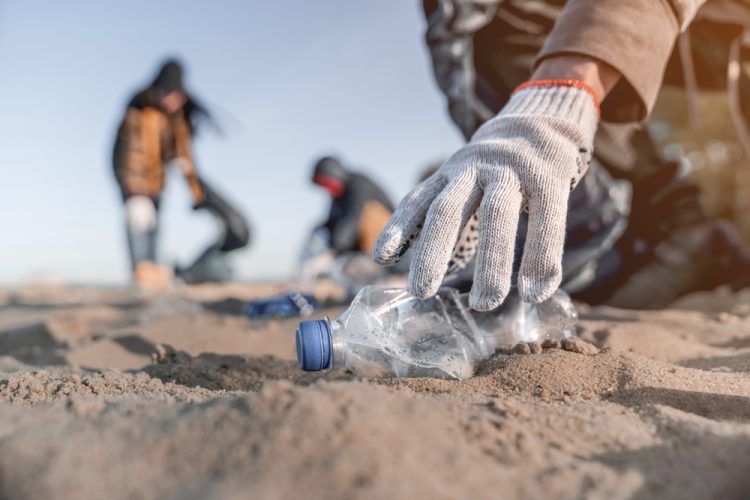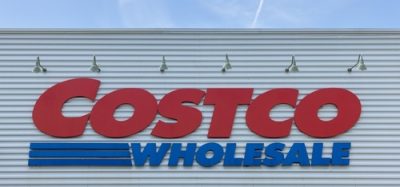FSA advises against using ocean-bound plastics for food packaging
Posted: 8 May 2025 | Ben Cornwell | No comments yet
The FSA issues new guidance on plastic food packaging following an assessment from the FCMJEG, advising against ocean-bound plastics.


The Food Standards Agency (FSA) has issued new guidance cautioning businesses against using ocean-bound plastics (OBP) in food packaging, including materials for meat, poultry and fish products sold in UK supermarkets. This follows an assessment published by the Joint Expert Group for Food Contact Materials (FCMJEG), which raised concerns over the safety of using these plastics in food contact materials (FCMs).
The FSA and Food Standards Scotland (FSS) reviewed the findings and concluded that there is “not enough evidence” to confirm that this type of plastic does not pose a health risk when used in food packaging. As a result, businesses are being advised not to use plastics collected from open environments – referred to as abandoned environmental plastic – in any packaging intended to come into contact with food.
What are ocean-bound plastics?
While there are several definitions of OBP available, there is no standardised international or widely accepted definition of OBP to date. Therefore, for the purpose of their assessment, the FCMJEG has broadened the scope to include not only OBP but also environmental plastic more generally, as the only distinction is proximity to the aquatic environment.
They consider environmental plastic or OBP as any discarded or abandoned plastic material that has been exposed to and collected from the open environment, where there is a risk of exposure to environmental factors such as degradation and UV.
This definition excludes plastics recovered from regulated waste streams like kerbside collections, which are still approved for use in food-grade packaging.
FSA statement
Dr James Cooper, Deputy Director of Food Policy at the FSA, commented:
We acknowledge the benefits of recycling abandoned plastic that has been collected from the open environment, especially plastic in danger of entering waterways or oceans (ocean bound plastics). Such initiatives, if carried out appropriately, can protect the environment while supporting innovation and economic growth. However, our role is to ensure food is safe and we have concerns over the safety of these plastics, which we term abandoned environmental plastic, when used in their recycled form for products such as ready meal containers, fresh food trays and bottles.
Abandoned environmental plastic is a small percentage of the recycled plastic market. The majority comprises kerbside recycled plastics which are still viable for food contact material. Plastic materials collected from established and controlled environments such as UK kerbside collection systems have undergone substantial work in the past to ensure that they adhere to current safety standards.
Unfortunately, we are currently not confident that the collection of abandoned environmental plastic, which is subsequently mechanically recycled, is meeting the same standards.
In light of this, we are advising businesses not to use this type of plastic in food packaging and to look for alternative uses for it.”
WRAP’s response
Helen Bird, Head of Materials Systems Transformation at WRAP, welcomed the FSA’s clarification.
“Recycling plastics into food grade packaging is done with utmost care using material collected from kerbside only to ensure that the plastic derives from food packaging, for food safety reasons,” she said. “There are many products which can and are successfully made using ocean-bound plastic, including non-food packaging, and we welcome this clarification from the FSA.”
Bird added that while the fight against plastic pollution remains critical, material destined for food contact must meet higher safety standards. “Plastic pollution is an environmental disaster. We must eliminate problematic and unnecessary single-use plastic and recycle plastic back into appropriate products and packaging, where possible.
“Most supermarkets and the food brands they sell are members of The UK Plastics Pact and committed to this end. Through their actions, 33 billion plastic items have already been removed from shelves. But more needs to be done to deal with the legacy plastic pollution.”
Recycled plastics still have a role
The FSA stressed that its advice does not apply to recycled plastics collected from controlled environments, such as the UK’s kerbside recycling systems. These materials have been extensively evaluated and remain safe for use in packaging food.
All food contact materials must adhere to existing UK legislation, and the FSA has published additional guidance to support businesses in understanding the specific requirements for recycled plastics. Food producers with concerns about labelling or compliance are encouraged to contact their local food safety teams.
Related topics
Environment, Food Safety, Packaging & Labelling, Sanitation, Sustainability









